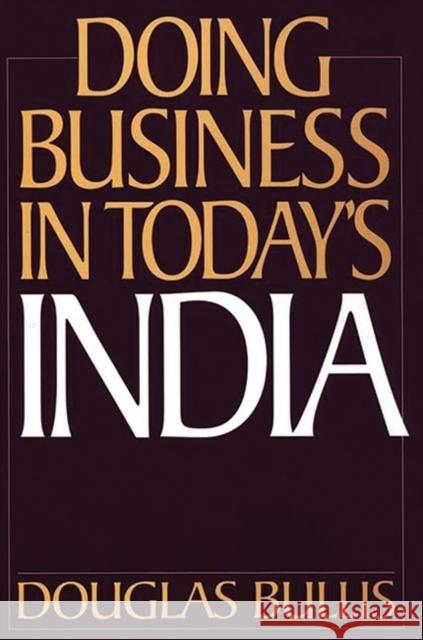Doing Business in Today's India » książka
Doing Business in Today's India
ISBN-13: 9781567201369 / Angielski / Twarda / 1998 / 344 str.
As the world business climate globalizes and national economies become closely interlinked, India looms as the largest country in the world to embrace the market economy. Bullis maintains that not only will India be changed by international market forces, it will have a significant impact upon the world economy as it emerges as a mass consumer market and an extended, low-cost manufacturing center. But India has problems that pose difficulties for offshore investors. Only with a clear idea of Indian business thinking and the relationship of commerce to India's complex mix of traditional, caste, and religious practices can businesspeople from the West gain any real hope of success. This work provides the sort of far-reaching information and advice essential for international businesspeople and for researchers and scholars in the academic community who want to be a part of India's economic future.
Bullis asserts that Indian businesspeople are far more knowledgeable about international markets than most international businesspeople are about India. Yet, India's long period of socialist dormancy produced very different concepts of management, employee relations, the role of competition, marketing, finance, and business-government relations. All these factors will play critical roles in the success or failure of investment plans formulated outside India's borders. Moreover, Indian people have a more diverse and compartmentalized culture than any other people, posing a marketing challenge (and challenges of other kinds) that outsiders may be ill-equipped to handle. Bullis's descriptions and analyses of the Indian economy, social structure, history, and business practices will provide the kind of understandings that Westerners need to enter the Indian market and compete successfully.











